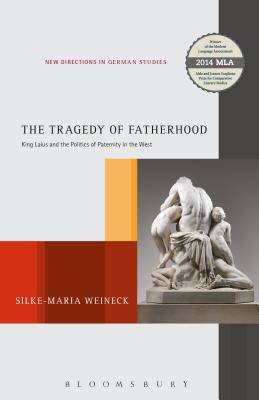
- Afhalen na 1 uur in een winkel met voorraad
- Gratis thuislevering in België vanaf € 30
- Ruim aanbod met 7 miljoen producten
- Afhalen na 1 uur in een winkel met voorraad
- Gratis thuislevering in België vanaf € 30
- Ruim aanbod met 7 miljoen producten
Zoeken
€ 339,45
+ 678 punten
Omschrijving
Winner of the 2015 Aldo and Jeanne Scaglione Prize for Comparative Literary Studies, awarded by the Modern Language Association.
Theories of power have always been intertwined with theories of fatherhood: paternity is the oldest and most persistent metaphor of benign, legitimate rule. The paternal trope gains its strength from its integration of law, body, and affect--in the affirmative model of fatherhood, the biological father, the legal father, and the father who protects and nurtures his children are one and the same, and in a complex system of mutual interdependence, the father of the family is symbolically linked to the paternal gods of monotheism and the paternal ruler of the monarchic state. If tragedy is the violent eruption of a necessary conflict between competing, legitimate claims, The Tragedy of Fatherhood argues that fatherhood is an essentially tragic structure. Silke-Maria Weineck traces both the tensions and various strategies to resolve them through a series of readings of seminal literary and theoretical texts in the Western cultural tradition. In doing so, she demonstrates both the fragility and resilience of fatherhood as the most important symbol of political power. A long history of fatherhood in literature, philosophy, and political thought, The Tragedy of Fatherhood weaves together figures as seemingly disparate as Aristotle, Freud, Kafka, and Kleist, to produce a stunning reappraisal of the nature of power in the Western tradition.Specificaties
Betrokkenen
- Auteur(s):
- Uitgeverij:
Inhoud
- Aantal bladzijden:
- 224
- Taal:
- Engels
- Reeks:
Eigenschappen
- Productcode (EAN):
- 9781628928181
- Verschijningsdatum:
- 28/08/2014
- Uitvoering:
- Hardcover
- Formaat:
- Genaaid
- Afmetingen:
- 140 mm x 218 mm
- Gewicht:
- 408 g

Alleen bij Standaard Boekhandel
+ 678 punten op je klantenkaart van Standaard Boekhandel
Beoordelingen
We publiceren alleen reviews die voldoen aan de voorwaarden voor reviews. Bekijk onze voorwaarden voor reviews.







